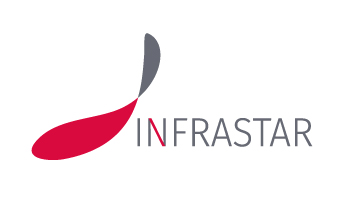Outreach and communication activities guidelines
The guidelines are available here and detailed below.
MSCA fellows are expected to engage in outreach activities as an integral part of their fellowship. Below is a non-exhaustive set of practical outreach activities that MSCA fellows could consider for their project.
Difference between communication and outreach
Outreach and communication activities are related, but are not the same and a good MSCA project should include a mix of both.
Outreach activities are meant to engage a large audience and to bring knowledge and expertise on a particular topic to the general public. Outreach activities can take several forms, such as school presentations, workshops, public talks and lab visits, etc. The objective of outreach is to explain the benefits of research to a larger public (the tax payers who fund your research). Outreach implies an interaction between the sender and the receiver of the message, there is an engagement and a two-way communication between the researcher and the public.
Communication, on the other hand, only goes in one direction from the sender to the receiver. Communication refers to articles in mainstream newspapers and magazines, or on TV and radio channels. Successful communication requires a clear language and attractive scientific subject with outstanding results that can catch the media's attention. The European Commission is aware that not every MSCA researcher is undertaking research of interest to the mass media. You can start small and attempt having your research published in your local newspaper. Researchers should be able to explain their project to the large public in accessible language: imagine having to explain what you do to fellow commuters on your daily trip to work.
Possible activities
In order to give visibility to MSCA projects, fellows could take part in outreach activities such as:
- Marie Skłodowska-Curie Ambassadors: Fellows acting as "Ambassadors" organise activities with the aim of promoting their research to all public audiences. MSCA researchers visit schools and universities or assist educators in preparing teaching materials, participate in conferences or events targeting the large public. A MSCA fellow acting as Ambassador can act as a role model to inspire the young generation to become a scientist/researcher, he/she can also promote the MSCA brand by sharing his/her testimonial and encourage other researchers to apply.
- Workshop Days: Fellows can run workshop activities, in order to spread the outcomes of their research and raise scientific awareness in their specific fields of study.
- Marie Skłodowska-Curie Project Open Doors: Students and general public visit research institutions and labs, with the aim of receiving a first-hand experience of what are the main implications for citizens.
- Public talks, TV-talks, podcasts and articles: Fellows can give a public talk or an interview, as well as write an article in local newspapers (non-scientific) in order to give visibility to the outcomes of their research activities.
- E-Newsletters: Marie Skłodowska-Curie fellows could develop a web-based document to be released on several web platforms/channels, in order to implement the online visibility of the project as well.
- Multimedia releases: Fellows could implement their outreach activities using all the possibilities offered by the internet. For instance, they could participate in webtalks or release videos explaining the outcomes of their projects in layman terms.
Moreover, fellows are invited take part in a number of activities organised by the European Commission, such as:
- European Researchers' Night (NIGHT): Fellows are encouraged to take part in the NIGHT, which is the yearly Europe-wide event providing an excellent opportunity for researchers to promote their profession to a wide audience. Those who would like to take part in a specific event, should contact the local coordinator in their city.
- EC events, conferences and Open Days: Fellows could be involved in a wide range of activities and events organised by the European Commission, such as events or conferences in which good science communicators are needed or events in which researchers encourage young people to pursue a scientific career.
- Marie Curie Alumni Association (MCAA): Fellows can extend their MSCA experience even after the end of their fellowship by joining the Marie Curie Alumni Association. This gives them the opportunity to find other researchers working in their field of interest, form project collaborations, apply for a micro-grant and communicate their current work. This could be done through MCAA's working groups, newsletters, conferences, workshops, etc. MCAA is open to any past or present Marie Skłodowska-Curie researcher benefiting from any action.
- MSCA "Fellow of the Week" on Facebook: fellows could nominate themselves via a private message on the Facebook page as "Fellow of the Week ".
- EC Campaigns: MSCA fellows are also encouraged to participate in EC campaigns specifically conceived for attracting young people in research (for instance, "Science: It's a girl thing!", the campaign encouraging girls to take up careers in science).
Please remember that you must mention the funding and the reference number of the MSCA project (on posters, PowerPoint presentations, videos, websites, and flyers/brochures).

